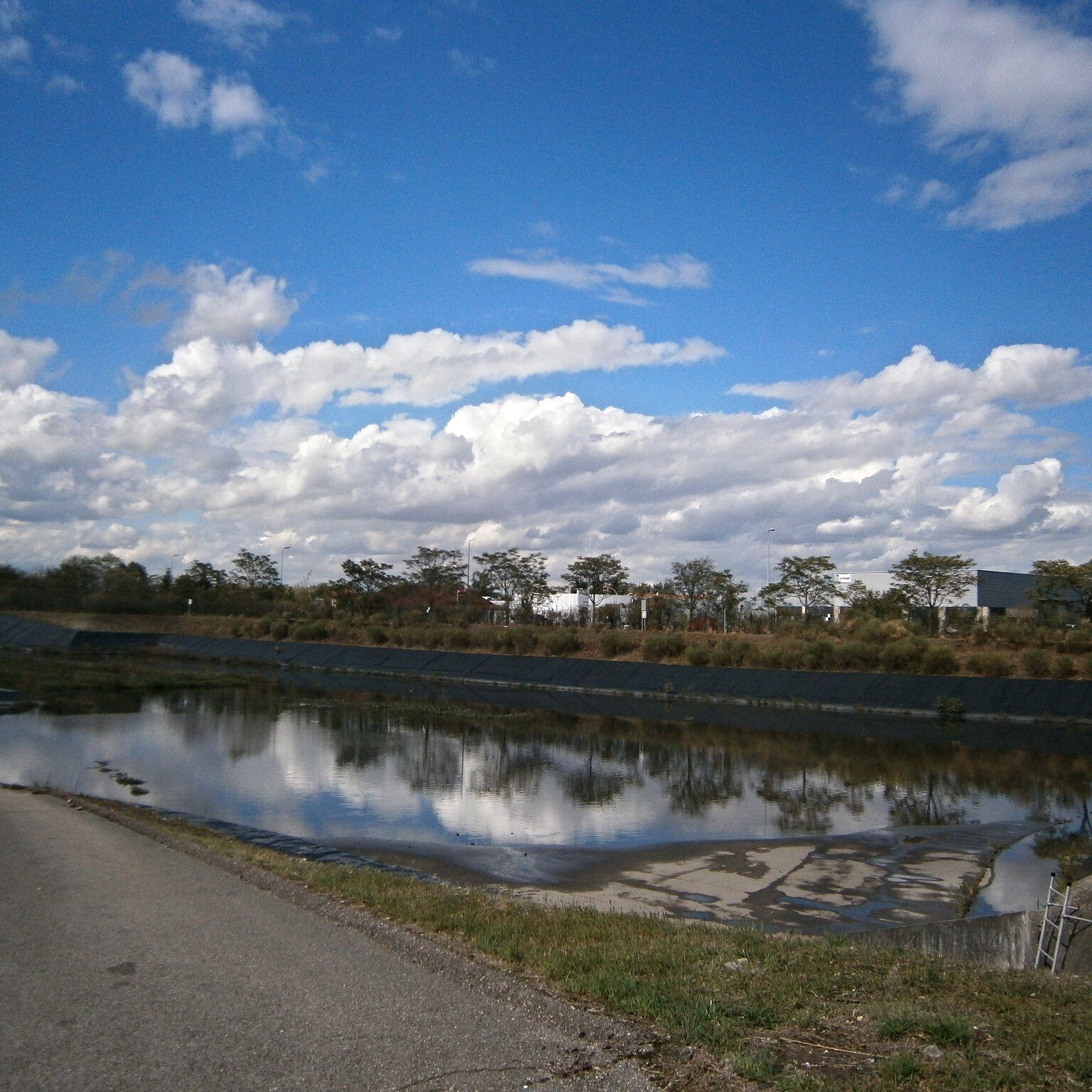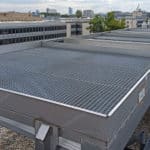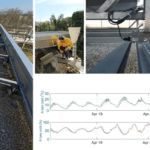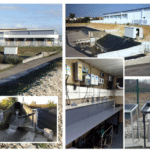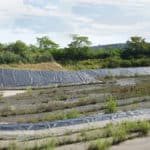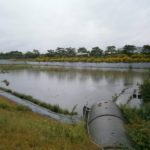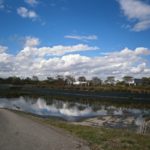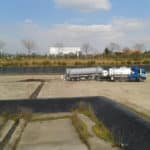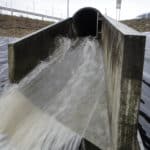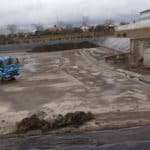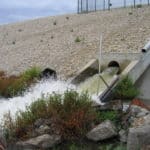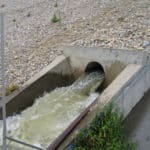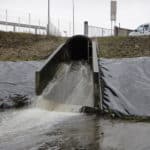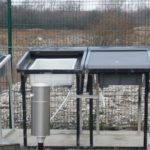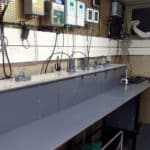
Location
INSA
Lyon | France
Fields of expertise
Runoff pollution
Performance of urban assets
SuDS solution
Digital water solution
Modality of Access
Partially remote
Access offered for each project
10 days
Number of Projects
1 (first call)
Expected composition of the visiting user-group
2 researchers during different stages of the project (configuration or deployment of equipment at the beginning of the project, during the experiment or at the end to uninstall or dissemble)
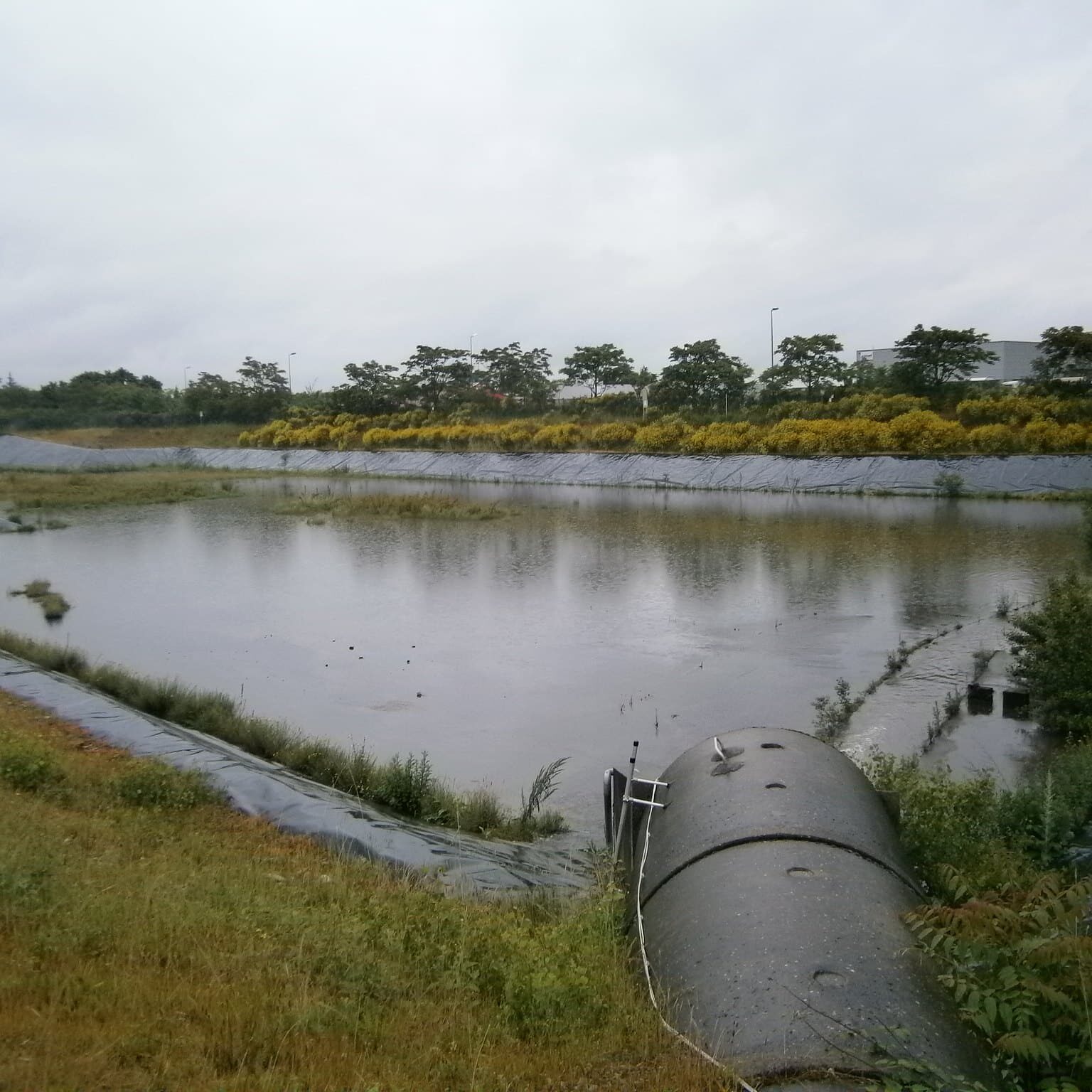
Description
The Django Reinhardt detention and settling basin is an “end of pipe” facility that enables to intercept up to 80 % of stormwater particulate pollutants.
The facility is located at the outlet of an industrial watershed of 185 ha, with an impervious rate of 75%. This detention basin is an open basin of 11000 m2 designed to be empty between rain events, and is composed of two inlets, an outlet, a gutter guiding the flow to three orifices during dry periods, and an overflow when the water height exceeds the retention wall.
Quantity and quality of stormwater have been monitored for at least 15 years at the inlet and outlet of the basin under the framework of the field observatory for urban water management (OTHU).
OTHU is supported by the Greater Lyon Metropolis, the Rhône Mediterranean and Corsica (RMC) Corse water agency, the national department of research and innovation, 9 academic partners, and 1 association mainly in charge of the design and dissemination of research outcomes and aims to improve knowledge and develop new technology in the field of urban water management.
Finally, as complementary characterization, sediment quality has been also investigated and the LSPIV technique has been optimized to analyse free surface velocity field of stormwater that is being retained in the detention basin.
Service provision
The experience of OTHU promoting the cooperation among researchers from different scientific fields as well as the collaboration between researchers and end‐users, will be placed at the service of external commercial and academic partners for using this facility.
The observatory provides reliable and contrasted data (climate parameters and water quantity and quality) obtained from continuous field measurements and campaigns of field sampling and laboratory analysis. This is used in the development and validation of urban drainage models considering sediment transport processes.
In addition, the detention and settling basin is an optimal place to test new and existing devices and assess sediment management strategies. Finally, cameras are also installed in order to get LSPIV-based velocity field at the free surface to validate 3D or 2D hydrodynamic models.
